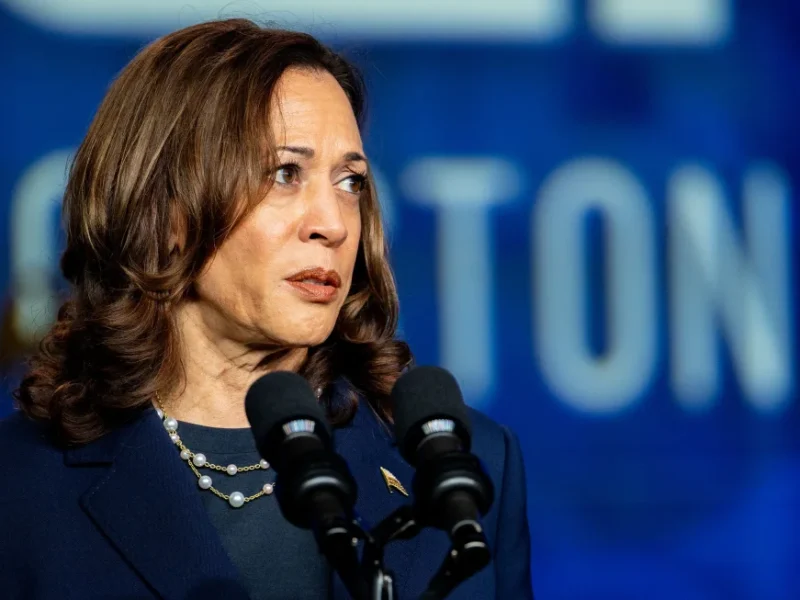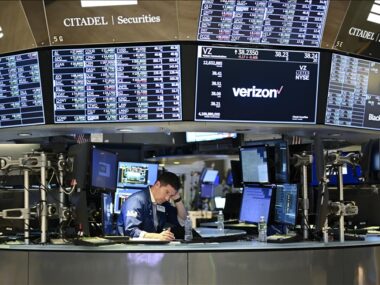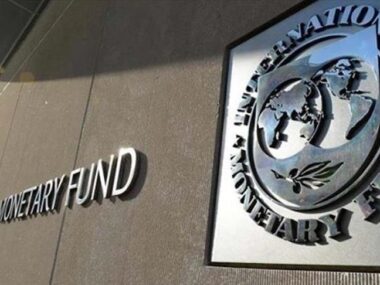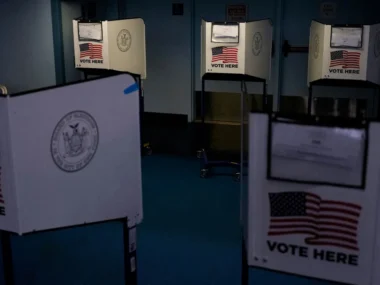For years, as Americans have voiced their frustration over the economy and living costs, the Biden-Harris administration has highlighted job creation as a key positive and a preferred sign of economic strength.
However, the latest jobs report from Friday dims this bright spot, showing fewer jobs created than expected, slowing wage growth, and a notable rise in unemployment. This has alerted the Federal Reserve to consider stimulating the economy by lowering interest rates. This data also brings attention to Vice President Kamala Harris’ economic policies, especially as she is set to accept the Democratic presidential nomination amid signs of economic slowdown.
In her short time as the presumptive nominee, Harris has emphasized her stance on abortion rights and her experience as a prosecutor. However, her economic policies are less clear, with general statements about strengthening the middle class. Her past actions investigating Wall Street and her left-leaning 2019 primary campaign have made some executives and investors uneasy.
People close to Harris, including advisers and administration officials, describe her economic views as “pragmatic,” “centrist,” and even “pro-business,” aiming to use private-sector partnerships to achieve better outcomes on the ground level.
Personnel as policy
Harris has two staff members handling economic and domestic policy issues, and she recently received a briefing from her team on the latest jobs data.
Since early 2022, she has not had an economist on her staff after Mike Pyle left his role to join the National Security Council and National Economic Council as a policy negotiator, or “sherpa.”
Within the administration, Harris often consults with deputy secretaries such as Deputy Commerce Secretary Don Graves, Deputy Energy Secretary David Turk, and Deputy Treasury Secretary Wally Adeyemo. She has also built a particularly close relationship with Treasury Secretary Janet Yellen.
Pyle remains one of her key contacts, along with other former administration members like Biden’s ex-economic policy head Brian Deese and Harris’ former domestic policy chief Rohini Kosoglu, for discussing various issues.
To lead policy development for her campaign, Harris appointed Treasury Undersecretary Brian Nelson, who previously worked with her when she was California’s attorney general. Nelson started this role on Friday.
An official close to Harris described Nelson as very close to her and her husband. Former colleagues see Nelson more as a “statesman” with significant managerial experience, suggesting he could easily take on a Cabinet role if Harris wins the presidency.
However, Nelson’s specific policy views are not well-known, prompting executives and donors to closely observe whom Harris consults for economic advice, as this will indicate her potential governing style. A longtime Democratic operative noted that the type of advisors Harris chooses, whether an establishment economist like Jason Furman or a progressive like Rohit Chopra, will reveal much about her approach.
Policy proposals
In 2020, candidate Biden formed a “unity” task force co-chaired by Vermont Sen. Bernie Sanders to represent the full range of Democratic views. This led to more progressive policies, such as student debt forgiveness, being incorporated into the platform.
Now, as Harris campaigns as a continuation of the current administration, she has a blueprint to follow, starting with the latest fiscal year budget released by the White House in March, according to sources.
A former administration official mentioned that Harris could simply adopt a handful of policies from the budget as her platform.
Friends and advisers indicate that Harris’ main priorities are policies benefiting working families, small businesses, and underserved communities. She also supports moderate tax policies, aiming to make the U.S. an attractive destination for investment and capital, a stance that sometimes clashes with her party.
The Harris campaign asserts that she will not raise taxes on individuals earning less than $400,000.
In 2023, during discussions on allocating about $100 billion in incentives for semiconductor companies, Harris pushed for the Commerce Department to consider metropolitan areas like Columbus, Ohio, and Syracuse, New York, to distribute the benefits more widely.
While she has been a supportive partner to Biden, advocating for his policies, she has also questioned some of his decisions. Early in the term, she challenged Biden’s consideration of Tom Vilsack for Secretary of Agriculture, arguing against appointing an older White man who had already held the position during Obama’s terms, especially when farmers of color had significantly contributed to Biden’s victory, particularly in Georgia.
Biden defended the choice by highlighting Vilsack’s expertise and ability to manage the agency’s vast budget remotely, which was necessary before the country fully reopened post-pandemic.
Involvement of the private sector
Harris has developed connections within the business world that her acquaintances expect her to rely on for external advice. She frequently consults with Ray McGuire, a veteran Wall Street executive now president of Lazard, and Blair Effron, co-founder of Centerview Partners, according to sources. Recently, she even hosted JPMorgan Chase CEO Jamie Dimon for lunch at the Naval Observatory, as reported by CNN.
These broad business connections have proven beneficial, officials say. For example, when the president tasked her with addressing migration causes, Harris initiated a public-private partnership aimed at job creation in Central America. Several companies, including Meta, Target, and Columbia Sportswear, committed about $6 billion, although only around $1 billion has been utilized so far.
However, Harris maintains a strong prosecutorial edge.
“She’s supportive of business, but she will ensure that companies engaging in wrongdoing are held accountable,” a long-time friend mentioned.
As California’s attorney general, she achieved an $18 billion settlement from banks like JPMorgan Chase and Citigroup over their involvement in the housing crisis—a case also worked on by Nelson during his tenure there.
Harris has also been known for her stance on combating anticompetitive hiring practices, such as suing eBay for such practices and supporting the Biden administration’s rule banning non-compete clauses in employment contracts. This ban, advocated by FTC chair Lina Khan, took effect this year.
An administration official close to Harris noted that while she appreciates some of Khan’s efforts, Harris is not as forceful as Khan, who has faced calls from some donors for replacement if Harris succeeds due to her aggressive stance on business mergers.











